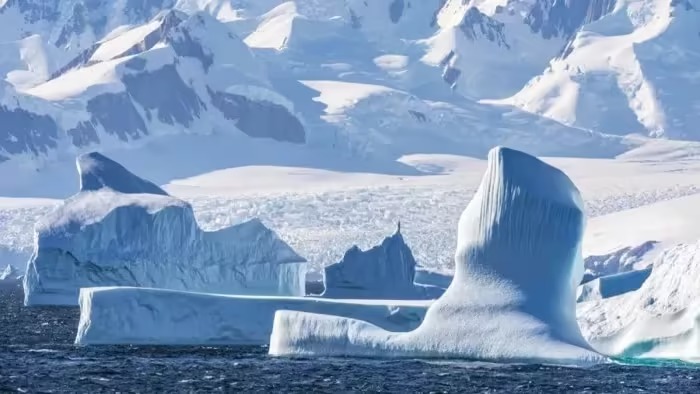
London: The swirling mass of cold air over Antarctica, one of the seven continents, has worried scientists. It is being known as the Antarctic polar vortex. After a dramatic rise in temperature in the Earth's stratosphere, the risk of the vortex breaking apart for the first time in two decades has increased. Scientists monitoring it have said that this Antarctic polar vortex appears to be unprecedentedly unstable.
New Scientist reports that this could lead to extreme heat in Antarctica. Along with this, the weather in Australia and South America could become unusually hot and dry.
The calm vortex has weakened dramatically
In fact, the normally calm vortex has weakened dramatically this year. The wind speed has decreased, causing cold air to escape and warm air to enter Antarctica. The effect of this has been that the vortex has moved away from its normal position, bringing cold weather to parts of Australia, New Zealand and South America.
The wind speed is decreasing again and again
Scientists warn that repeated slowing of wind speeds could lead to sudden changes in the direction of the vortex. This, known as stratospheric warming, combined with potential splitting, could make already bad conditions even worse.
A little heat can be a sign of a big event
Simon Lee of the University of St Andrews in Britain says that even relatively small disruptions in the vortex can have big effects. He said, "Sometimes a minor heat wave can herald a major event after the vortex. The main reason for this is the low variability of the Antarctic vortex. If anything unusual happens in it, it can become a major event very quickly."
This year's lineup is very unusual.
Chantel Blachut, who studies the behavior of the southern polar vortex at the University of Adelaide in Australia, said that this year's structure is very unusual. The warm air is having a dangerous effect on this vortex. This is increasing the drag on the two structures on either side of the vortex.
The situation is uncertain right now
However, the current situation is uncertain whether the vortex in Antarctica will actually split. However, this is unusual and is raising concerns about potential effects on global weather patterns. Climate change factors such as reduced sea ice and the Hunga Tonga-Hunga Ha'apai volcanic eruption are contributing to the instability of this vortex.
there could be far reaching consequences
This could have far-reaching consequences. Not only could Antarctica face record-breaking heat, but Australia and South America could also face extreme heat and drought.
Read More: Saudi Crown Prince's 'private call' with Trump before Iran attack; what happened?
--Advertisement--

 Priya
Priya Share
Share



